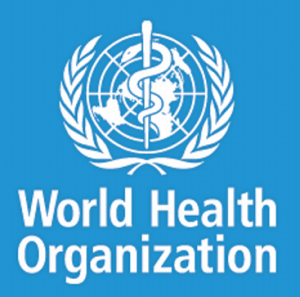Diabetes kills 416,000 people in Africa in 2021 – WHO
 Diabetes mellitus took the lives of 416,000 people on the African continent last year and becoming one of the leading causes of death in Africa by 2030.
Diabetes mellitus took the lives of 416,000 people on the African continent last year and becoming one of the leading causes of death in Africa by 2030.
Mr Francis Kasolo, the World Health Organization (WHO) Representative to Ghana, who disclosed this in a statement read on his behalf at Ghana’s commemoration of the 2022 World Diabetes Day, said 24 million adults in Africa were currently living with the condition.
The number was, however, predicted to swell by 129 per cent to 55 million by 2045.
Diabetes is a chronic metabolic disease typically characterised by high sugar in the blood. Types are ‘Type 1’, affecting usually children with little or no insulin, ‘Type 2’, usually occurring after 18 years with poor response to insulin and ‘Gestational Diabetes’, one that is caused by pregnancy among women.
Mr Kasolo said Diabetes was the only major non-communicable disease for, which the risk of dying early was increasing, rather than decreasing.
The commemoration, organised by the Ministry of Health, was on the theme: “Access to Diabetes Care”.
He said epidemiological trends were reflected in Ghana as Type-2 Diabetes affected approximately six per cent of adults, a percentage that was expected to rise.
The WHO Representative said the known factors include family history and increasing age, along with modifiable risk factors such as overweight and obesity, sedentary lifestyles, unhealthy diets, smoking and alcohol abuse.
When left unchecked and without management and lifestyle changes, Diabetes, he said, could lead to several debilitating complications like heart attack, stroke, kidney failure, lower limb amputation, visual impairment, blindness, and nerve damage.
To enhance controlling of the condition, Mr Kasolo appealed to governments of WHO member states to prioritise investment in essential products like insulin, glucometers and test strips, explaining: “This is critical to ensure equitable accessibility for everyone living with diabetes, no matter where on the continent they are”.
Dr Efua Commeh, Acting Programme Manager, Non-communicable Diseases, Ghana Health Service, said Diabetes affected a significant number of children, many of whom were not recognised.
“Children with this condition will live with it for very long time and it will affect productivity. Moreover, there are many who walk around with the condition without knowing about it,” she noted.
In Ghana, she said Diabetes prevalence was between six and seven per cent, adding: “Obesity, hypertension, unhealthy diet and lifestyles are rising and it’s, therefore, not surprising that diabetes is also rising among the public”.
Dr Commeh said more than 200,000 people passed through the Out Patient Department of health facilities every year with diabetes, including gestational conditions.
Mrs Tina Mensah, Deputy Minister of Health, who launched the commemoration, said Diabetes went beyond the government health system and called on health development partners to join hands with government to control the condition in Ghana.
Mr Steven Arthur, a representative of Roche, a biotech company, who said Diabetes was a lifestyle disorder, encouraged the public to acquire a certified glucometer to check their sugar levels every morning before breakfast and two hours after lunch.
He also asked those with Diabetes to engage in physical activities at least 150 minutes per week, spread within three discontinuous days.
Mr Arthur admonished the public to consume only low, good quality calories, as bad ones affected sugar levels with sweetness and unhealthy fats.
“There are a lot of apps that can help you to track your sugar and calories levels and also try to visit your Diabetes Specialists regularly to enable them modify your treatments accordingly,” he said.
Source: GNA
